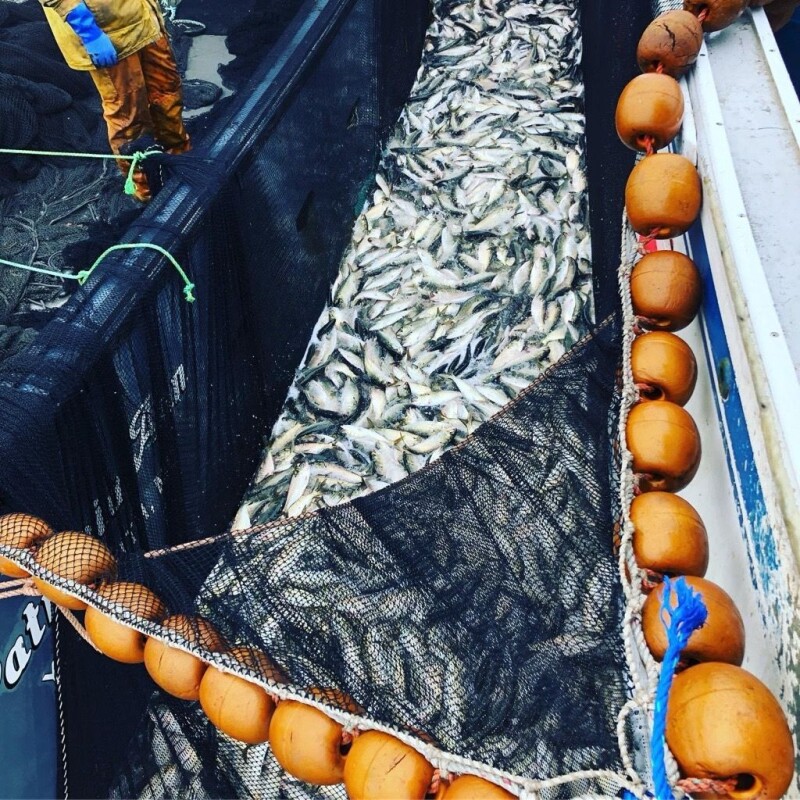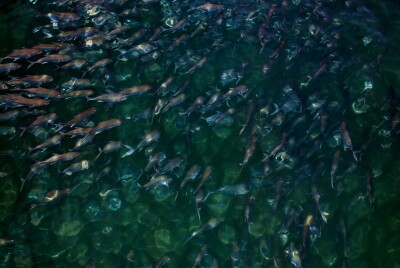Menhaden, also informally known as pogies, have a long history in our country as a staple bait fish used for food for other commercial fisheries such as lobster. Fishing for this species dates back to the 1800s when harvesting pogies was meant for fish meal and fish oil. Purse seines, pound nets, and other gear were used to capture the species, and to this day the purse seine fishery in Massachusetts continues.
The 2024 purse seine fishery opening date was moved to May 15 for Massachusetts commercial fishermen, a couple of days before the Maine commercial season opened. Pogies in nearshore waters along the coast have driven conflict due to the competing activities of catching bait for the lobster industry and bait for local fishermen and tackle shops. The state’s Division of Marine Fisheries (DMF) acknowledges the conflict. It is working to de-escalate it, emphasizing that the harvest of pogies is a shared resource, instilling a sense of collective responsibility between the recreational and commercial sectors.
The Atlantic States Marine Fisheries Commission manages menhaden and sets commercial quotas coastwide and state-by-state, each managing its quota. The Massachusetts commercial quota is 10,838,902 pounds for 2024, managed by DMF. Their management includes season start dates, limited entry permitting, daily possession limits that drop through quota utilization triggers, no fishing days on Saturday and Sunday, and limitations on fishing activity in certain areas.
Significant competition between commercial and recreational fishermen occurred last year due to the low abundance of menhaden in inshore waters during the summer. In Boston Harbor, DMF shared that they had received numerous complaints from recreational anglers and commercial seiners about “on-the-water conflict and competition for schools of menhaden.” Often, these complaints were “conflicting and difficult to sort out.”
In late March, DMF met with recreational striped bass anglers and commercial menhaden purse seine vessels operating in Boston Harbor. The main goal was to bring representatives of both groups together to discuss the issues, learn more about menhaden management, enhance communication, and create a culture of cooperation on the water.
DMF commented following the meeting that they appreciated the chance to meet with representatives from both sectors. They stated, “This meeting was a positive step and has hopefully laid groundwork for communication and cooperation among users rather than conflict.”
Though it is still early into the 2024 season, there have been no reports of conflicts. This year’s season began a month earlier than 2023 and resulted in 61.5% of the quota being caught through June 12, most of which was caught outside the inshore harbors and bays.







